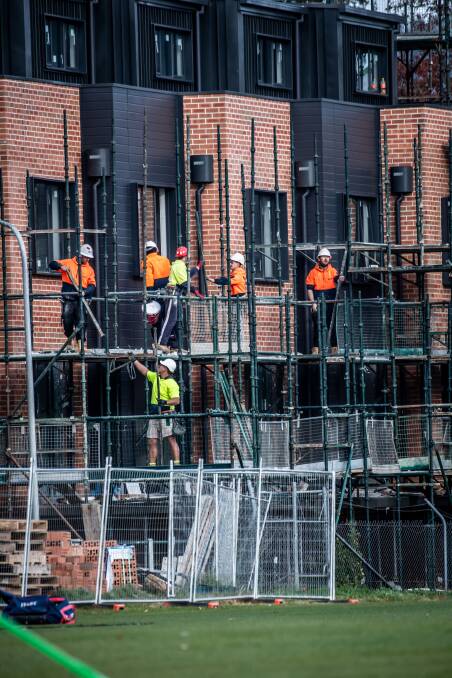Reforms that allow employers to change duties, hours and locations of staff that were instituted with the JobKeeper wage subsidy measure will be among labour force flexibility measures the government will seek to continue.
Subscribe now for unlimited access.
$0/
(min cost $0)
or signup to continue reading

"The first cab off the rank will be labour market flexibility and a continuation of the industrial reforms that accompanied the JobKeeper introduction," Treasurer Josh Frydenberg said on Thursday when asked what reform measures would be needed for the economic recovery.
Under the JobKeeper program introduced to subsidise wages at businesses that had been hit by the pandemic, employers can require employees to work different hours and do different duties than normal.
Mr Frydenberg said firms receiving the payments now should be able to be maintain that flexibility in the future.
"This is a discussion that the Attorney-General will have with the relevant stakeholders, because what we do know is that businesses have relied on those flexible labour market reforms to operate in this challenging environment," he said.
"And it is reasonable that if you were previously working in sales in the showroom, but your shop has closed, that your employer can ask you to help in the warehouse with the stocking."
Australia's employment outlook is grim, with more Australians to lose their jobs by the end of the year, and many to stay out of work for months to come. The government is in the middle of a series of round-table discussions with business and unions in an attempt to reform Australia's industrial relations landscape, and changes will require crossbench support in the Senate if Labor doesn't support change.
READ MORE:
Labor said those arrangements were for businesses suffering deep downturns in turnover at the worst of the pandemic crisis.
"Our worry is that the government is now using this crisis as an excuse for more enduring, more detrimental changes to the way workers are treated in the workforce," shadow treasurer Jim Chalmers said.
"We don't think they've yet made the case for why businesses which have bounced back should hang on to some of these arrangements which were struck when they were in the deepest part of the downturn."
Dr Chalmers said Labor had engaged with sensible and temporary arrangements.
"The government shouldn't be using this crisis as an excuse to satisfy some of their old, ongoing, ideological obsessions regarding industrial relations."


